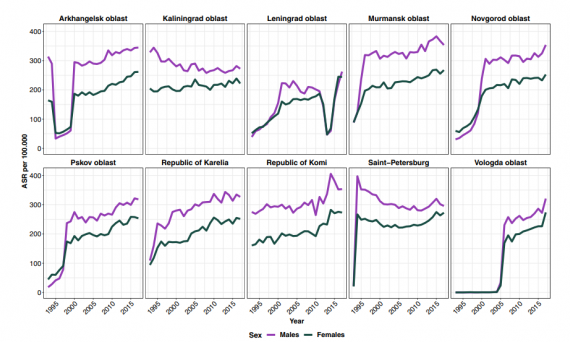On October 18, a scientific article was published in the journal BMC Cancer, in which researchers from the Institute of Medical Studies of the European University at St. Petersburg and the N.N. Petrov National Medical Research Center of Oncology assessed the completeness of the data from cancer registries in the regions of the Northwestern Federal District for 2008–2017. In an earlier study, the researchers assessed the comparability and reliability of these data. The results mean that information from cancer registries in several regions of Russia can be used in international epidemiological studies.
Cancer registries are databases of new cancer cases. They make it possible to calculate morbidity, mortality, patient survival, make prognoses and evaluate the effectiveness of preventive and screening programs. The quality of cancer registry data consists of four indicators: completeness, comparability, accuracy, and timeliness. Completeness is one of the data quality criteria of population-based cancer registries. This criteria describes the extent to which the registry accounts for the majority of cancer cases in a particular area. Incomplete data can lead to inaccurate estimates of cancer morbidity and mortality.
Eight out of ten registries in the Northwestern Federal District collected data with a degree of completeness of more than 90%. The comparatively low degree of completeness of two registries, St. Petersburg and Leningrad Oblast, is probably related to the high population size and less centralized organization of care. Patients may go to different oncological institutions, which do not always notify population-based cancer registries about new cases of cancer. Data completeness is also affected by the early timing of reporting: the national report on cancer morbidity and mortality is published in the fall, but registries submit data for it at the beginning of the year. This, according to international recommendations, is premature.
Researchers at the N.N. Petrov National Medical Research Center of Oncology and the Institute of Medical Studies of the European University at St. Petersburg have been studying the quality of data from the registries of the Northwestern Federal District since 2020. In the first paper, the researchers assessed the comparability and reliability of data from the registries of the Northwestern Federal District. The data were comparable, but the quality of cancer registration varied from region to region.
Illustration: graph from the article
